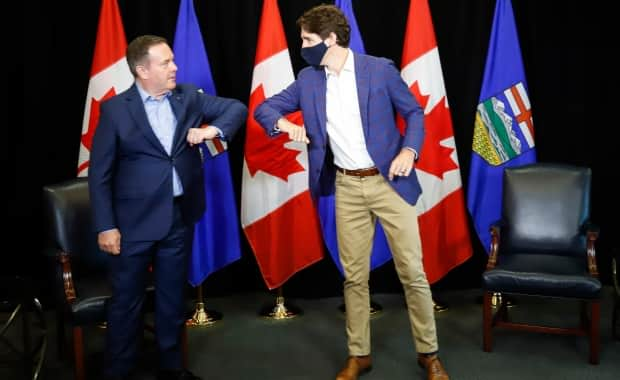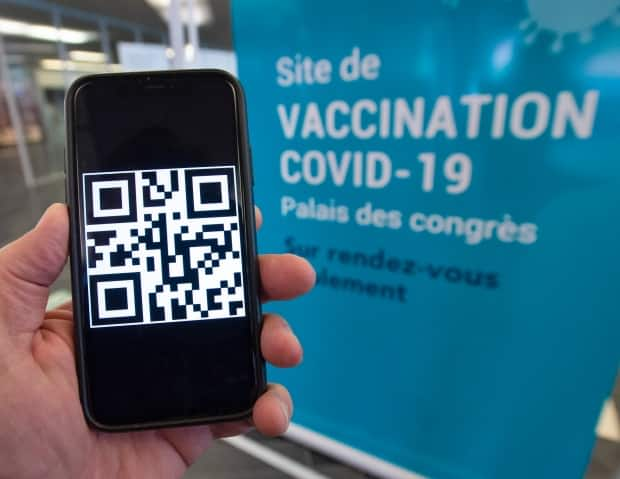Trudeau says he'll leave domestic vaccine passports up to the provinces

Prime Minister Justin Trudeau says the federal government will work with provinces to ensure there is an "internationally accepted proof of vaccination" for international travel, but will leave domestic options up to the provincial governments.
Trudeau's comments come after some provinces, like Quebec and Manitoba, have announced plans for an internal vaccine passport. Other provinces, like Alberta and Saskatchewan, have said they won't have such requirements.
During a press conference on Tuesday, Trudeau was asked if the federal government should play a role to help standardize provincial programs, but he said his government is focused on an international vaccine passport.
"Different provinces will be doing different things, where the federal government has a role to play and where we are looking is in terms of vaccine certification for international travel," Trudeau said.
Any attempt to bring in a domestic vaccine passport could be met by resistance from some provinces.
During a media availability on Monday, Alberta Premier Jason Kenney answered "yes" when asked whether his government would push back if the federal government attempted to bring in a passport program.

Trudeau said last month that his government is working on an international vaccine passport program, but the idea has raised concerns about privacy.
In May, Canada's federal, provincial and territorial privacy commissioners issued a joint statement warning that while vaccine passports "may offer substantial public benefit, it is an encroachment on civil liberties that should be taken only after careful consideration."
Concerns about mixing doses
In June, the National Advisory Committee on Immunization updated its guidance allowing for AstraZeneca-Oxford, Pfizer-BioNTech or Moderna shots to be used interchangeably in certain situations.
Trudeau was asked if the government has received assurances that Canadians will be allowed to travel if they have shots of two different vaccines, even if other countries haven't approved mixing doses.
"We're going to work with the international community to make sure that people who are fully vaccinated in ways that Canadians recognize as safe and effective are also recognized around the world," he said.
Trudeau also said several Canadians living abroad have received vaccines not yet approved in Canada. He said the government is looking at which vaccines the World Health Organization has certified to determine which ones would qualify for a vaccine passport.
The government has started easing some travel restrictions already for fully vaccinated Canadians and permanent residents.
As of last week, those with two doses are able to enter Canada without undergoing quarantine.

